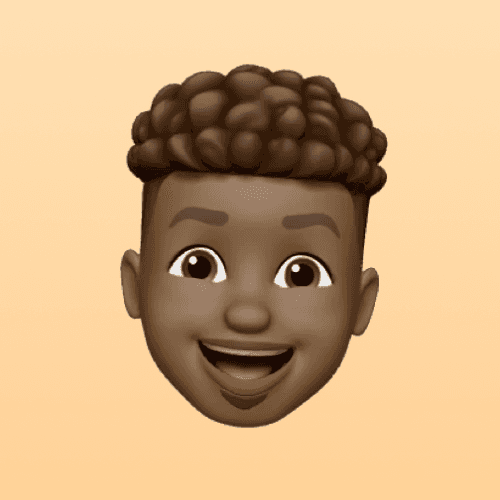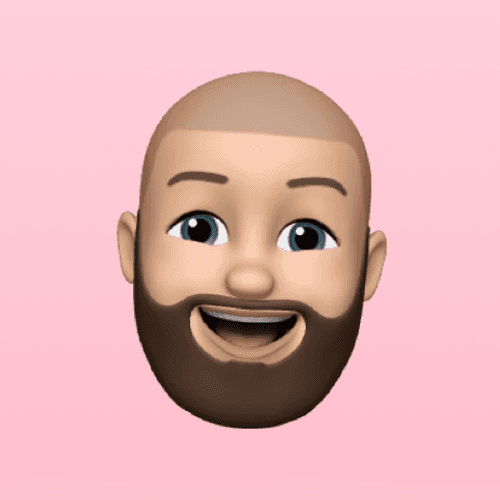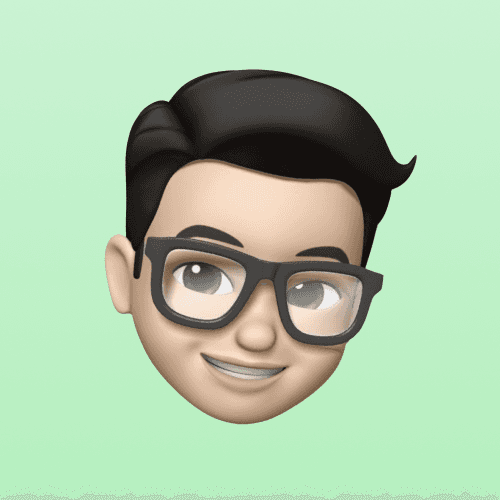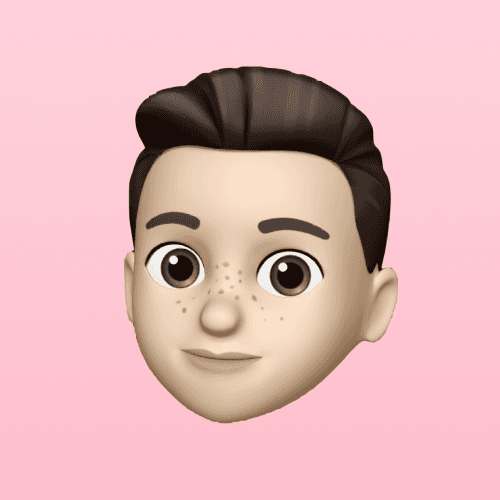Hospital Management System
Total Users
500 (first three months)
SuccessfulTransactions
97
Hospital Management System Africa



My Role
My Role
UI/UX Designer
Project Type
Project Type
Healthcare
Project Timeline
Project Timeline
2 Months
Team Members
Team Members
Kachi (Project Manager)
Overview
Overview
Overview
Overview
Overview
Hospital management system is a solution designed to help hospitals to automate workflow, which makes work much easier and faster ranging from documentation task assignment etc with the use of mobile and computers.
Hospital management system is a solution designed to help hospitals to automate workflow, which makes work much easier and faster ranging from documentation task assignment etc with the use of mobile and computers.
Problem
Problem
Problem
Problem
Problem
Over time, many African hospitals have relied on manual paperwork for documenting clinical data, recording” attendance, managing pharmacy inventory, etc. This approach has resulted in a laborious process for hospital owners, doctors, and nurses alike.
Over time, many African hospitals have relied on manual paperwork for documenting clinical data, recording” attendance, managing pharmacy inventory, etc. This approach has resulted in a laborious process for hospital owners, doctors, and nurses alike.
User Research
To get deeper understanding of the current workflow and the reason why most hospital still use the manual method for their work, I decided to conduct research with healthcare professionals working in hospitals. This research wasn't solely focused on hospitals that doesn’t use (HMS) hospital management software, but also included those utilizing such systems. This approach allows me to identify any potential flaws in the current solution. I specifically opted for primary research to gather specific insights.
Interview Process
I had an audio call with both nurses and doctors from both government hospitals and private hospitals to get a clear understanding of their workflow. After conducting user research, I created an affinity map to organize the feedback I received from users. However, due to the volume of data and to maintain user privacy, I didn't include it here.
Design Process
Design Process
Design Process

User Research
To get deeper understanding of the current workflow and the reason why most hospital still use the manual method for their work, I decided to conduct research with healthcare professionals working in hospitals. This research wasn't solely focused on hospitals that doesn’t use (HMS) hospital management software, but also included those utilizing such systems. This approach allows me to identify any potential flaws in the current solution. I specifically opted for primary research to gather specific insights.
Interview
Process
I had an audio call with both nurses and doctors from both government hospitals and private hospitals to get a clear understanding of their workflow. After conducting user research, I created an affinity map to organize the feedback I received from users. However, due to the volume of data and to maintain user privacy, I didn't include it here.
Design Process


Research insight
For hospitals that don't use hospital management software
80% of hospitals still operate manually.
Hospitals stick with the manual method because they can't afford laptops for staff due to the high cost and maintenance.
Nurses and doctors have to either call or move from one department to another just to pass information.
Nurses have to constantly go downstairs to check the info of the next patient to be treated.
Doctors/hospital owners can't get real-time updates on medication availability in the pharmacy store without contacting the pharmaceutical department.
For hospitals that use hospital management software:
Only the head of each department has the privilege to use the solution because hospitals can't afford computers for everyone.
The software can't be used on mobile devices.
The software is run with Ethernet cables, making it impossible to carry these computers around.
Nurses have to walk to their quarters to see the next assigned patient, as they can't view it from their phones.
Hospital owners can't get real-time updates on patients currently receiving treatment in their hospital when away.
User Research
To get deeper understanding of the current workflow and the reason why most hospital still use the manual method for their work, I decided to conduct research with healthcare professionals working in hospitals. This research wasn't solely focused on hospitals that doesn’t use (HMS) hospital management software, but also included those utilizing such systems. This approach allows me to identify any potential flaws in the current solution. I specifically opted for primary research to gather specific insights.
Interview Process
I had an audio call with both nurses and doctors from both government hospitals and private hospitals to get a clear understanding of their workflow. After conducting user research, I created an affinity map to organize the feedback I received from users. However, due to the volume of data and to maintain user privacy, I didn't include it here.
Understanding
Hospital workflow
I inquired with healthcare professionals about the typical patient journey, starting from their initial interaction with front desk nurses up to the point of checkout. This information will assist me in crafting a journey that aligns with the familiar experiences of nurses and doctors.


Proposed solution after ideation
Develop a solution that seamlessly operates on both mobile and desktop platforms, streamlining workflows for increased efficiency among hospital owners and their staff.
Create a system that offers hospital owners live updates on daily admissions, eliminating the necessity for frequent phone inquiries.
Implement a solution that integrates a mobile/desktop app for pharmacists, allowing them to provide real-time updates on drug inventory.
Devise a system facilitating easy task assignment for hospital owners, promoting streamlined communication without reliance on phone calls.
Create a solution that aids hospital owners in scheduling urgent meetings with their staff or specific departments within the hospital.
Key features of the solution
Patients' management
Attendance taking
Real time record of staffs working in different shifts
Staff management.
Electronic health records
Staff/patient tracking
Medical bailing automation
Pharmacy inventory.
Chats
Automate patient scheduling
Real time update on active workers, treatment tracking, and admitted patients.
User Research
User Research
To get deeper understanding of the current workflow and the reason why most hospital still use the manual method for their work, I decided to conduct research with healthcare professionals working in hospitals. This research wasn't solely focused on hospitals that doesn’t use (HMS) hospital management software, but also included those utilizing such systems. This approach allows me to identify any potential flaws in the current solution. I specifically opted for primary research to gather specific insights.
Interview
Process
Interview
Process
I had an audio call with both nurses and doctors from both government hospitals and private hospitals to get a clear understanding of their workflow. After conducting user research, I created an affinity map to organize the feedback I received from users. However, due to the volume of data and to maintain user privacy, I didn't include it here.
Research insight
Research insight
Research insight
Research insight
For hospitals that don't use hospital management software
For hospitals that don't use hospital management software
For hospitals that don't use hospital management software
80% of hospitals still operate manually.
Hospitals stick with the manual method because they can't afford laptops for staff due to the high cost and maintenance.
Nurses and doctors have to either call or move from one department to another just to pass information.
Nurses have to constantly go downstairs to check the info of the next patient to be treated.
Doctors/hospital owners can't get real-time updates on medication availability in the pharmacy store without contacting the pharmaceutical department.
For hospitals that use hospital management software:
For hospitals that use hospital management software:
For hospitals that use hospital management software:
Only the head of each department has the privilege to use the solution because hospitals can't afford computers for everyone.
The software can't be used on mobile devices.
The software is run with Ethernet cables, making it impossible to carry these computers around.
Hospital owners can't get real-time updates on patients currently receiving treatment in their hospital when away.
Nurses have to walk to their quarters to see the next assigned patient, as they can't view it from their phones.
Understanding
competitors
product
Understanding
competitors
product
Understanding competitors
product
Understanding competitors product
Understanding
competitors
product
Swift is an amazing product that helps hospitals automate their workflow to an extent, but it lacks the ability to be used across different devices. Additionally, it works with Ethernet cables, which makes it unable to be used outside your department. Nurses or doctors can't get real-time updates of tasks assigned to them or access information while not seated in their office. Imagine going to a patient's ward to administer treatment and then having to return to your department to get the ward number of the next patient. It's quite stressful.
Swift is an amazing product that helps hospitals automate their workflow to an extent, but it lacks the ability to be used across different devices. Additionally, it works with Ethernet cables, which makes it unable to be used outside your department. Nurses or doctors can't get real-time updates of tasks assigned to them or access information while not seated in their office. Imagine going to a patient's ward to administer treatment and then having to return to your department to get the ward number of the next patient. It's quite stressful.
Understanding
Hospital workflow
Understanding
Hospital workflow
UnderstandingHospital workflow
Understanding
Hospital workflow
I inquired with healthcare professionals about the typical patient journey, starting from their initial interaction with front desk nurses up to the point of checkout. This information will assist me in crafting a journey that aligns with the familiar experiences of nurses and doctors.


Proposed solution after ideation
Proposed solution after ideation
Develop a solution that seamlessly operates on both mobile and desktop platforms, streamlining workflows for increased efficiency among hospital owners and their staff.
Create a system that offers hospital owners live updates on daily admissions, eliminating the necessity for frequent phone inquiries.
Implement a solution that integrates a mobile/desktop app for pharmacists, allowing them to provide real-time updates on drug inventory.
Devise a system facilitating easy task assignment for hospital owners, promoting streamlined communication without reliance on phone calls.
Create a solution that aids hospital owners in scheduling urgent meetings with their staff or specific departments within the hospital.
Key features of the solution
Key features of the solution
Patients' management
Attendance taking
Real time record of staffs working in different shifts
Staff management.
Electronic health records
Staff/patient tracking
Medical bailing automation
Pharmacy inventory.
Chats
Automate patient scheduling
Real time update on active workers, treatment tracking, and admitted patients.
1
Empathize
2
Define
3
Ideate
4
Prototype
5
Test
Design Process


Registration screen for front desk nurses
Front desk nurse registers a patient and assigns a nurse to check her vitals
Mon
17
Upload Image
Patient Name
Email (optional)
Mobile
State
Age
Gender
Address
Specialization
Payment Received?
Yes
$400
Save
Assign To:


Kelvin Chikezie
Vitals Checker


Kelvin Chikezie
Vitals Checker


Kelvin Chikezie
Vitals Checker


Kelvin Chikezie
Vitals Checker
Available Nurses
Search here
Done
Patients awaiting vital check up from nurses point of view on her dashboard.
Mon
17
7
AM


Kelvin Chikezie
Dentist Doctor
7
AM


Kelvin Chikezie
Dentist Doctor
7
AM


Kelvin Chikezie
Dentist Doctor
7
AM


Kelvin Chikezie
Dentist Doctor
7
AM


Kelvin Chikezie
Dentist Doctor
Nurse takes and document patient vitals on a mobile app with ease.


Loveth Chikezie
Chikeziekelvin24@gmail.com
Temperature
Respiratory Rate
Heart Rate (Pulse)
Temperature
Blood Pressure
Oxygen Saturation
Specialization
Dentist
Outstanding Payment
Paid
$400
Payment Received?
No
$400
Save
Mon
17
After Vital check up, nurse selects the appropriate doctor that would take care of the patient.
Assign To:


Kelvin Chikezie
Dentist Doctor


Kelvin Chikezie
Dentist Doctor


Kelvin Chikezie
Dentist Doctor
Available Doctors
Search here
Done
Mobile dashboard for nurses in
(Pharmaceutic Department )
Receives medication request and packages it before the nurse comes for it.
Welcome Chiamaka!
Paracetamol is out of stock!


Restock
Ring
Chiamaka Benita
Chikeziekelvin24@gmail.com


Request (5)


Patients


Pharmacy




Staff List
You have 10 task today!
View Tasks
Mon
17
Home
Notification
Chat
Profile
List of inpatients that needs daily medications.
Mon
17
7
AM


Kelvin Chikezie
Room 121
7
AM


Kelvin Chikezie
Room 123
7
AM


Kelvin Chikezie
Room 123
7
AM


Kelvin Chikezie
Dentist Doctor
7
AM


Kelvin Chikezie
Dentist Doctor
This record is taken by the “attendance taker” and once she records it, it automatically reflects on the dashboard of the hospital owner.
Staff attendance
Morning
Just Now


Chidinma
Chikeziekelvin24@gmail.com
Surgeon
7:00pm


Chidinma
Chikeziekelvin24@gmail.com
Surgeon
6:55pm


Chidinma
Chikeziekelvin24@gmail.com
Surgeon
See All







Hospital owner/Doctor conveniently sees patients that booked appoint with him through his dashboard. Once he clicks the bell, a notification would be sent to the awaiting patient.
You have 10 appointment today!
Mon
17
My Appointment
Aug
Female


Linda Gabriella
Gabriella24@gmail.com
Date
17, Aug, 2023
Time
09:00 am
See Vitals
Ring
Female


Linda Gabriella
Gabriella24@gmail.com
Date
17, Aug, 2023
Time
10:00 am
See Vitals
Ring
See All
When a nurse alerts a doctor of an emergency, he see’s it from his dashboard and takes action immediately.
Emergency








Chidinma
sgkfr@gmsilsdf
Patient
Sir, this patient is not breathing well, please we need your help.
@Collions Smit
Sickness
Malaria
Patient Ward
101
Check Out
See All




01
Hospital owner automatically gets notification when a particular medicine is out of stock in the store.
02
The pharmaceutical department can also alert the hospital owner when a medicine is out of stock .
03
Doctors/Nurses has the able to assign a particular task to the hospital owner, this can be assigning him to a particular patient that needs his attention.


Paracetamol is currently out of stock.
1m ago
View
Paracetamol is currently out of stock.
@Collions Smit


Linda Gabriella
pinged you.
3m ago
View task


Linda Gabriella
Assigned a task to you.
5m ago
Yes Sir, i am done with the treatment of mr luke in ward 505, please come and check him.
@Collions Smit


Linda Gabriella
Replied your comment.
10m ago
Yes Sir, i am done with the treatment of mr luke in ward 505, please come and check him.
@Collions Smit


Linda Gabriella
Replied your comment.
3h ago
Yes Sir, i am done with the treatment of mr luke in ward 505, please come and check him.
@Collions Smit


Linda Gabriella
Replied your comment.
5h ago
Yes Sir, i am done with the treatment of mr luke in ward 505, please come and check him.
@Collions Smit


Linda Gabriella
Replied your comment.
6h ago
Yes Sir, i am done with the treatment of mr luke in ward 505, please come and check him.
@Collions Smit


Linda Gabriella
Replied your comment.
9h ago
Mark all as read
My learnings
My learnings
My learnings
My learnings
This project initially enlightened me about hospital environments, and it further broadened my comprehension regarding healthcare solutions in Nigeria and throughout Africa. A substantial number of hospitals greatly desire workflow automation, yet the steep prices of computers and maintenance fees often persuades them to maintain manual operations. These operations are undoubtedly strenuous and time-intensive. Through the inclusion of mobile phones in their work processes, we saw a noticeable simplification as these institutions weren't required to allocate substantial funds towards computers and upkeep charges.
This project initially enlightened me about hospital environments, and it further broadened my comprehension regarding healthcare solutions in Nigeria and throughout Africa. A substantial number of hospitals greatly desire workflow automation, yet the steep prices of computers and maintenance fees often persuades them to maintain manual operations.
These operations are undoubtedly strenuous and time-intensive. Through the inclusion of mobile phones in their work processes, we saw a noticeable simplification as these institutions weren't required to allocate substantial funds towards computers and upkeep charges.